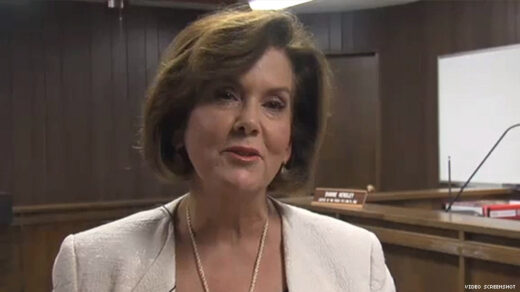Who Is Fighting the Economic Oppression of LGBTQI+ People?
Author: M. V. Lee Badgett

Chickens and eggs might become new symbols for the LGBTI movement as we celebrate the International Day Against Homophobia, Transphobia, and Biphobia on May 17. In a small town in an African country known for its homophobic laws, a group of LGBTI activists and allies have just welcomed 400 new chickens to a new enterprise that will provide jobs for several LGBTI people and support food and housing for others.
In many countries we are seeing grassroots activists using a fresh set of strategies to open up economic opportunities for LGBTI people. LGBTI people are making and selling soap to help their community prevent COVID-19 in another African country. Transgender women in India have started a dairy farm, and other South Asian transgender women have created an online marketplace to sell their crafts and art. Activists in India, Nigeria, and the United States are organizing job fairs to match up LGBTI job-seekers with employers. Other groups are providing job search and vocational skills so LGBTI people can compete for emerging opportunities. Innovative investors are funding LGBTI entrepreneurs in Mexico and South Africa.
The creativity, resourcefulness, and hard work of LGBTI people aren’t new, but the pandemic has made it clear how urgent these strategies are. Economic livelihoods were precarious for LGBTI people throughout the world before COVID arrived, with high poverty rates and discriminatory barriers to jobs. Over the last year, LGBTI people in the United States have been more likely than heterosexual cisgender people to lose jobs and work hours, to experience food insecurity, and to have financial problems as a result of COVID. We don’t have good LGBTI data in other countries, but we have many reports of lost homes, disappearing jobs, closed businesses, severe hunger, and struggling community organizations in low- to middle-income countries. Transgender people, in particular, are hurting in the current economic climate everywhere.
Local and global relief efforts within the LGBTI community have helped to meet immediate needs for food and housing, but the need is greater than available resources. Looking longer term, LGBTI organizations are continuing to push governments, multinational corporations, and local companies to adopt nondiscrimination policies and other practices so LGBTI people can find and keep jobs. Education activists work to end bullying and discrimination that drive LGBTI people out of school and undermine the skills and knowledge they need to earn a living.
Also, the global LGBTI movement works hard for recognition of human rights for LGBTI people, an essential goal to be sure. But which comes first — improvements in human rights or expanded economic opportunities? Obviously, we need both. Having a decent livelihood and freedom from discrimination are human rights for all people.
Just as important, economically secure LGBTI people are in a better position to advocate for change. Bringing in a good income is a path to better health and improved relationships. Participants in programs to enhance livelihoods often report that they get more respect from their families and communities, who also gain from economic contributions of LGBTI people. Economic empowerment means power, and LGBTI people need that in every dimension of life.
There’s no need to put all our eggs in either the human rights basket or the economic opportunity basket. We can work on both at the same time if we expand our resources. Big foundations that focus on global economic opportunities and equity, like Ford, Gates, and OSF, could use what they’ve learned about self-help groups, skills training, entrepreneurship, self-help groups, credit, mental health, and gender equity to create new programs that would reduce poverty and lack of opportunities for LGBTI people.
Governments and multilateral aid agencies spend hundreds of billions of dollars each year in development assistance, but only 4 cents out of every $100 goes to LGBTI issues, so there is significant room for improvement. Some governments and agencies are starting to get on board, but we need the World Bank, the United Nations, USAID, and other development agencies to step up their efforts and funding. These big institutions need to make sure their existing economic development programs are inclusive of LGBTI people in practice, not just in principle. Also, LGBTI people face stigma and other challenges that might make targeted programs necessary.
We don’t have to rely solely on intermediaries like foundations or development banks and agencies. Crowd-funding options give us all the opportunity to support good projects, but we need better inclusion of LGBTI people on existing platforms. Or we could create our own crowd-funding platform for LGBTI projects, a project some of us are working on.
Matching funding to promising opportunities in the world means we have some learning to do. We’ll need to learn from the small-scale projects about what works, how to scale them up, and how to find people with promising projects. We’ll need partnerships between grassroots activists, social entrepreneurs, funders, and people with ideas.
Economic fairness and human rights mean that this work is not an option — it’s essential for meeting LGBTI people’s needs. By combining the pandemic sense of urgency with practical economic concerns, we can jumpstart direct investments in improving LGBTI livelihoods. We need to fill this new basket now with fertile ideas to grow opportunities for the global LGBTI community.
M. V. Lee Badgett is a professor of economics at the University of Massachusetts Amherst and a distinguished scholar at the Williams Institute at UCLA School of Law. She is the author of The Economic Case for LGBT Equality: Why Fair and Equal Treatment Benefits Us All (Beacon Press).
Original Article on The Advocate
Author: M. V. Lee Badgett




